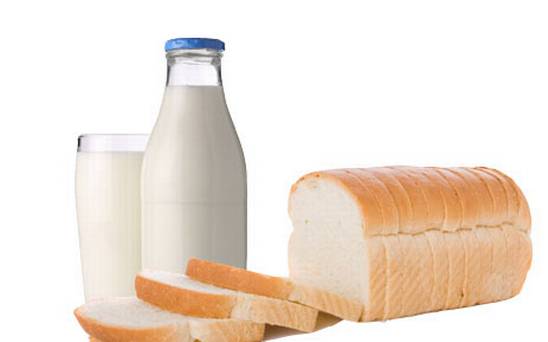List Foods To Avoid With Trulicity

Foods can interact with medications in several ways, which can affect the efficacy of the medication. Some medications need to be taken on an empty stomach to be absorbed properly. If the medication is taken with food, especially foods high in fat or fiber, it can slow down the absorption and reduce the effectiveness of the medication.
The liver is responsible for metabolizing many medications, and certain foods can affect how the liver processes medication. While some medications can bind to certain nutrients in food, such as calcium, iron, and magnesium. If the medication binds to these nutrients, it may not be absorbed properly, reducing the efficacy of the medication. In this article, we shall be taking an in-depth look at Trulicity as well as the foods and beverages to avoid while on the medication.
What is Trulicity?
Trulicity (dulaglutide) is a medication used to treat type 2 diabetes. It belongs to a class of drugs called GLP-1 receptor agonists. GLP-1 (glucagon-like peptide-1) is a hormone produced in the gut that stimulates the release of insulin and lowers blood glucose levels. GLP-1 receptor agonists are designed to mimic the effects of this hormone, thereby helping to regulate blood sugar levels in patients with type 2 diabetes.
Trulicity is a once-weekly injectable medication that comes in prefilled pens. The medication works by activating GLP-1 receptors in the pancreas, which helps to stimulate insulin secretion in response to high blood sugar levels. Trulicity also slows down the rate at which food is absorbed from the gut, which helps to reduce the amount of glucose produced by the liver.
Trulicity also has other effects that can benefit patients with type 2 diabetes. It can help to reduce appetite, leading to weight loss in some patients. Trulicity may also help to protect against cardiovascular disease by reducing inflammation and improving blood vessel function.
Trulicity is intended to be used in combination with a healthy diet and exercise to help manage blood sugar levels in patients with type 2 diabetes. It is not recommended for patients with type 1 diabetes or for the treatment of diabetic ketoacidosis.
What Foods Should You Avoid When Taking Trulicity
While taking Trulicity, there are certain foods that you should avoid or limit to ensure that the medication is effective and safe. Here are some examples:
1. High-carbohydrate foods: Trulicity works by reducing the amount of glucose produced by the liver, so consuming high-carbohydrate foods can counteract its effects. It is recommended to limit your intake of refined carbohydrates, such as white bread, rice, and pasta, as well as sugary foods like candy, soda, and desserts.
2. Fatty foods: Eating high-fat foods can slow down the absorption of Trulicity and reduce its effectiveness. It is recommended to limit your intake of fried foods, fatty meats, and full-fat dairy products.
3. Alcohol: Consuming alcohol can increase the risk of hypoglycemia (low blood sugar) when taking Trulicity. It is recommended to limit your alcohol intake or avoid it altogether while taking this medication.
4. Grapefruit: Grapefruit and grapefruit juice can interact with Trulicity and increase the amount of medication in your bloodstream. It is recommended to avoid grapefruit or grapefruit juice while taking this medication.
5. Unhealthy snacks: Snacks that are high in sugar, salt, or unhealthy fats should be avoided while taking Trulicity. Instead, opt for healthier options like fruits, vegetables, and whole-grain snacks.
It is important to talk to your doctor or a registered dietitian for personalized recommendations on what foods to avoid or limit while taking Trulicity. They can help you create a healthy eating plan that is tailored to your individual needs and goals.
Medication Interaction
Some medications may interact with Trulicity and affect how it works or increase the risk of side effects. Some examples of medications that may interact with Trulicity include:
- Insulin or other diabetes medications: Using Trulicity with other medications that lower blood sugar may increase the risk of hypoglycemia (low blood sugar). Your doctor may need to adjust your medication doses to avoid this.
- Certain medications for thyroid problems, such as levothyroxine: Trulicity may affect the absorption of these medications, so it is important to take them at least 4 hours before or after Trulicity.
- Medications that slow down the movement of food through the stomach and intestines, such as opioids: Trulicity may slow down the emptying of the stomach, and using it with these medications may increase the risk of gastrointestinal side effects such as nausea and vomiting.
- Medications that affect the immune system, such as corticosteroids or immunosuppressants: Trulicity may affect the immune system, and using these medications may increase the risk of infections.
- Medications that affect blood clotting, such as warfarin: Trulicity may increase the risk of bleeding when used with these medications.
Always inform your doctor of all medications you are taking, including prescription drugs, over-the-counter medications, and supplements, to avoid potential drug interactions. Your doctor can help determine the best course of treatment for you while taking Trulicity.
How To Get The Best Results With Trulicity
Here are some tips for getting the best results with Trulicity:
- Follow your doctor’s instructions: Your doctor will prescribe the correct dose and schedule your Trulicity injections. Make sure to follow these instructions carefully to get the best results.
- Take Trulicity on time: Trulicity injections are usually taken once a week, on the same day and time each week. Set a reminder to ensure you don’t forget to take your medication.
- Watch your diet: Eating a healthy diet is an essential part of managing type 2 diabetes. Avoid foods that are high in sugar and carbohydrates, and focus on whole foods that are low in fat and calories.
- Exercise regularly: Exercise is important for maintaining a healthy weight and controlling blood sugar levels. Talk to your doctor about an exercise plan that’s right for you.
- Monitor your blood sugar levels: Regularly checking your blood sugar levels can help you track how well Trulicity is working and make any necessary adjustments to your treatment plan.
- Keep up with your appointments: Regular check-ups with your doctor are important for monitoring your progress and adjusting your treatment plan as needed.
- Be patient: It may take some time to see the full benefits of Trulicity. Stick with your treatment plan and be patient as your body adjusts to the medication.
Remember, Trulicity is just one part of a comprehensive treatment plan for type 2 diabetes. Make sure to follow your doctor’s instructions and incorporate healthy lifestyle habits for the best results.





